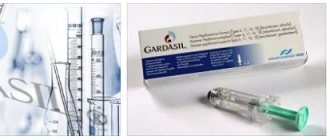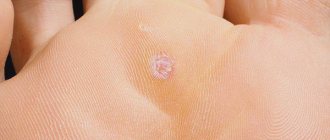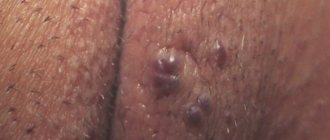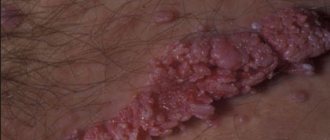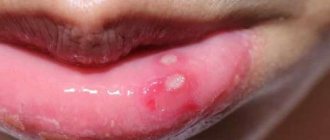We talk about a cold that has popped up on our lips and immediately remember Acyclovir. This is an immunomodulator belonging to the group of antiviral drugs used to treat herpes types 1 and 2, genital herpes and chickenpox. It contains no toxic elements, it acts selectively - only on the cells of the virus itself, suppressing their reproduction.
Acyclovir-Acri ointment
So, let's start with the fact that herpes does not only occur on the lip; viral diseases affect various parts of the human body. Therefore, Acyclovir is sold in the following forms, each of which has its own indications for use: cream and ointment for topical use 5%, tablets (200 mg, 400 mg, 500 mg), solution for intravenous injection Lyophilisate 250 mg, ophthalmic ointment 3%.
What is acyclovir?
Acyclovir is a selective, antiviral drug, a nucleoside analogue, related to cytarabine, idoxuridine, trifluridine and vidarabine, active against 4 types of herpes virus (herpes simplex types 1 and 2, chickenpox (type 3), cytomegalovirus (type 4)). It slows down the growth and spread of the herpes virus in the body by affecting their viral cells at the DNA level. This drug does not completely cure herpes, but it reduces the symptoms of the infection and its acute course.
Acyclovir is used both for therapeutic treatment and for the prevention of relapses. It effectively eliminates skin rashes and foci of inflammation around it, prevents the spread of the viral pathogen (contamination), and reduces the complications of herpes.
The effect of acyclovir therapy is greatest when treatment is started early, especially for non-primary infections, which usually have a shorter course than the primary episode. Long-term prophylactic oral acyclovir in patients with frequent episodes of genital herpes simplex completely suppresses relapses in most patients; As with other acyclovir-responsive infections, the viral latency period is not eradicated and the pre-treatment relapse rate returns after treatment is stopped.
Caution should be exercised when using acyclovir prophylactically in the general population due to the theoretical risk of the emergence of viral strains that are resistant to acyclovir and other agents whose mechanism of action is dependent on viral thymidine kinase (viral protein).
Intravenous acyclovir is the drug of choice for biopsy-proven herpetic encephalitis (damage to the nervous system by herpes) in adults, and has also been successfully used in the treatment of disseminated herpes simplex in pregnant women and herpes in newborns. Intravenous and oral acyclovir protects against the spread and progression of varicella zoster virus infection, but does not protect against postherpetic neuralgia (a complication of herpes zoster, manifested by the appearance of serous rashes in the area of innervation of individual branches of the trigeminal nerve).
In immunocompromised patients, intravenous, oral, and topical acyclovir reduces the clinical course of herpes simplex infections, while prophylaxis with oral or intravenous dosage forms suppresses reactivation (recurrence) of the infection while taking the drug.
Ophthalmic use of 3% acyclovir ointment quickly cures herpetic corneal ulcers and superficial herpetic keratitis. Thus, despite its failure to eradicate latent virus, acyclovir, administered therapeutically or prophylactically, is now standard antiviral therapy for some manifestations of herpes simplex virus infection and does represent a major advance in this regard.
The causative agent of genital herpes
The causative agent of herpes simplex is the herpes virus type 1 (HSV), which is characterized by painful rashes on the skin and mucous membranes in the form of blisters (vasicles). They most often affect the face and upper extremities. But they can also occur on the genitals.
Genital herpes is most often simple herpes of the second type. The virus affects the genitals and manifests itself as itchy rashes.
The pathogen enters the body of a healthy person, mainly through sexual contact, but also through blood transfusions and organ transplants. It is transmitted in 40 percent of cases during childbirth - from a sick mother to the child, as well as through the placenta during pregnancy.
The virus is small in size, penetrates through microtraumas, enters the bloodstream and lymph and immediately integrates into healthy cells, causing their death. Viral particles remain inactive for life in the nerve ganglia of the central nervous system.
In case of facial herpes, the virus lives in the ganglia of the trigeminal nerve, in case of genital herpes - in the ganglia of the lumbosacral spine. From there, the virus spreads to all other areas as the outbreak of infection grows.
The virus is characterized by its multifocality. The causative agent of herpes can concentrate in lymphocytes (blood cells) and lead to disruption of immune mechanisms. This is expressed in frequent colds, decreased performance, and enlarged lymph nodes. Herpes also affects the membranes of the brain, can contribute to the occurrence of meningitis, and causes nervous disorders and vegetative-vascular manifestations.
Symptoms of acyclovir overdose
You should stop taking acyclovir if you experience these symptoms:
- easy bruising or bleeding, purple or red dotted spots under the skin;
- changes in behavior (motor restlessness and emotional agitation, confusion, hallucinations);
- disorders of the urinary system (anuria (lack of urination), painful or difficult urination), swelling of the lower extremities;
- feeling tired, shortness of breath.
Uncomplicated side effects of acyclovir include:
- skin allergic manifestations (itching, soreness of the skin when touched, rashes);
- nausea, which may be accompanied by vomiting, stomach upset (diarrhea);
- headaches and/or dizziness;
- pain in the mouth when taking acyclovir tablets buccally (by the cheek).
Typically, cases of acyclovir overdose have been recorded extremely rarely, but common manifestations are allergic reactions, which entail a number of symptoms:
- hives, blisters, itching;
- difficulty breathing and swallowing;
- swelling of the face, throat, tongue, lips, eyes, hands, feet, ankles, or legs;
- hoarseness;
- cardiopalmus;
- general weakness;
- pale skin;
- confusion and/or loss of consciousness;
- the appearance of unusual bruises on the body;
- blood in urine and stool;
- numbness, burning or tingling in the upper and lower extremities;
- temporary inability to move parts of the body.
If you experience any of the above symptoms, you should contact your doctor immediately.
Prevention of genital herpes
The main preventive method is personal sexual abstinence, exclusion of casual sexual contacts, and the use of condoms:
- If casual sex occurs, it is necessary, without delaying for long, to undergo a full examination for the presence of hidden sexually transmitted infections.
- If signs of herpes or other suspicious symptoms appear, you should immediately visit a medical facility, get tested and begin timely treatment.
- It is worth excluding situations when you have to use other people’s hygiene products - towels, washcloths; everyone should have their own set of hygiene products, including in the family.
- It is not recommended to kiss children on the lips or use someone else's lipstick.
- If infection occurs, the patient must take medications to contain the virus and prevent the spread of infection.
Considering that the virus can be in the body undetected, it is worth regularly undergoing preventive tests to make sure that you are not carrying the virus.
It is also worth supporting the body and its immunity. Lead a healthy lifestyle, eat right, maintain intimate hygiene.
There is no 100% guarantee against infection. However, risky factors should be avoided. If casual sex occurs, herpferon ointment should be used for prevention within the next hour or two. And then be sure to get tested for antibodies.
What you need to know before you start taking acyclovir
You should not take this medication if you are allergic to acyclovir or valacyclovir (Valtrex). The use of Sitavig buccal tablets is not recommended if you have an allergic reaction to milk proteins.
To make sure this medication is safe for you, check with your doctor before taking it if you have a history of the following conditions:
- kidney disease;
- weakened immunity (as a result of taking some medications or caused by any disease).
It is especially important to consult a specialist if you are pregnant or planning a pregnancy, or if you are breastfeeding a child. Because herpes can be passed on to your baby during birth if you develop genital lesions at birth. If you have genital herpes, it is very important to prevent herpes during pregnancy.
During lactation, this medication may be unsafe. You should consult with your doctor to identify and determine any possible risks to your newborn baby.
Acyclovir can be used in children from 2 years of age.
Genital herpes in children
Children are very susceptible to herpes. A child born from a sick mother runs the risk of contracting herpes at birth. The child's eyes, mouth, and nose are most susceptible. Infection at birth occurs in 40 percent of cases.
Intrauterine infection of the fetus, which more often ends in the death of the child, cannot be ruled out.
The child is at risk of infection during kisses from adults, as well as when they lick the baby's pacifier.
A child is susceptible to the disease both in kindergarten and at school if there are sick children. It has been proven that the herpes virus can even be transmitted through airborne droplets.
Still, genital herpes spreads more often through sexual contact, and the household contact route is not very common. Although the virus easily tolerates low temperatures, it lives in the external environment, outside the human body, for no more than 6 hours.
Teenagers are at risk of becoming infected through unprotected sex.
If herpes is not treated, it causes damage to internal organs.
Herpes in a child manifests itself mainly as rashes on the nose, lips, and neck. But it can also become widespread during an exacerbation, causing myocarditis, meningitis, chronic bronchitis and other inflammatory pathologies of internal organs.
It is possible that herpetic rashes may appear on the genitals of children. In boys - on the penis and scrotum, in girls - on the labia and vagina.
In children under one year of age, herpes occurs in three forms:
- Generalized - the genitals are affected, rashes are observed on the genitals and in the area of the inguinal folds, body temperature rises. There is a high probability of death, urgent medical attention is required.
- Localized. Possible rash in a separate area, swelling of the affected area. Bubbles can be on the genitals, on the cornea of the eye. If the eye is affected, blindness may occur.
- Brain damage. During the first weeks of life, this form of the disease can cause body temperature up to 40 degrees, severe vomiting and convulsions. Next - loss of consciousness and coma. Up to 50 percent of babies die. If help is provided on time, treatment can take up to 6 months; the signs of genital herpes disappear.
Genital herpes in children often manifests itself as rashes in the nasolabial area, but also on the genitals.
How to take acyclovir?
You must take acyclovir exactly as indicated in the instructions or as individually prescribed by your doctor. Do not use the drug in doses that do not comply with the instructions and do not exceed the permissible duration of use.
To use this medication in children, be sure to consult a doctor and carefully study the official instructions for the drug.
To use buccal acyclovir, do not crush, chew, suck, or swallow the tablet; simply place the flat side of the tablet on the herpes-affected area.
Note!
Giving buccal tablets to children is strictly prohibited, as this can lead to suffocation.
If you take acyclovir in the form of a suspension, be sure to use a special dosing measuring cup to measure the dosage. It is not recommended to use ordinary cutlery (a kitchen spoon) for this purpose.
The calculation of the dose of acyclovir used depends on the weight category (especially important for children). When losing or gaining body weight, the dose may vary.
During treatment with acyclovir, it is important to drink as much fluid (drinking water) as possible to maintain normal kidney function.
When prescribed a course of treatment with this drug, it is necessary to strictly follow it, even if your symptoms improve after the first days of using acyclovir, since interrupting treatment or skipping doses may increase the risk that the virus will become resistant to acyclovir, and there is also a high likelihood of frequent relapses.
The drug should be stored out of the reach of children, away from moisture and heat.
Recommend some remedy for cold sore lips for a pregnant woman
Unfortunately, first-line drugs for the treatment of exacerbations of orolabial herpes are indicated for use during pregnancy only if the benefit to the mother outweighs the risk to the fetus and child [2]. Expectant mothers can be encouraged to use a lip balm or cream with a UV filter - it protects the skin of the lips from the negative effects of ultraviolet radiation, which is considered one of the triggers for relapses of herpes. Additionally, I would recommend lip moisturizers to prevent dry skin.
Consequences of an overdose of acyclovir
Cases of overdose with acyclovir have not been recorded, but if a dose of acyclovir is taken too high, the following symptoms may occur:
- nausea, vomiting, diarrhea;
- headache, dizziness, clouding of consciousness;
- dyspnea;
- anaphylaxis (immediate allergic reaction);
- febrile symptom (increased body temperature);
- swelling;
- visual impairment;
- general malaise;
- myalgia (muscle pain).
If you have taken a high dose of acyclovir and experience any of the above symptoms, you should seek emergency medical help as soon as possible.
Factors that provoke genital herpes
The virus does not manifest itself until the human body restrains it due to its protective forces - immunity. The trigger for the growth of the virus are factors such as:
- emotional and physical exhaustion;
- hypothermia;
- period;
- surgical interventions;
- infectious diseases.
There are cases where the provoking factor was ultraviolet exposure to sunlight.
With good immunity, the virus may not detect itself at all throughout life. In this case, the person acts as a virus carrier and is able to infect others.
What should you not do while taking acyclovir?
When using buccal acyclovir until it is completely dissolved in the mouth, you should avoid brushing your teeth, chewing gum, and wearing dentures. You can rinse your mouth with caution. It is recommended to drink plenty of water to prevent dry mouth.
It is worth remembering that herpes infections are contagious, even if you are treated with acyclovir you can still infect other people, so avoid contact of infected areas with other people. When touching the infected area, do not touch the mucous membranes of the eyes with your hands. Wash your hands with soap as often as possible to prevent the spread of infection.
With genital herpes, even during treatment with acyclovir, the risk of infecting a sexual partner does not decrease. It may still be contagious even if you don't have any symptoms.
Diagnosis of genital herpes
Despite the characteristic rash of herpes, other diagnostic data are also necessary to clarify the diagnosis. These tests also make it possible to determine the type of virus.
The doctor must refer the patient to:
- general blood analysis;
- blood testing for the presence of hidden infections, primarily herpes viruses;
- ultrasound diagnostics of the pelvic organs;
- diagnosis of vaginal microflora by examining a vaginal smear.
Sometimes you may need to consult other specialists - a urologist, gynecologist, cardiologist, neurologist.
What are the side effects of acyclovir?
Common side effects after taking acyclovir may include:
- headaches and dizziness;
- pain in the gastrointestinal tract, feeling of nausea;
- hives (itchy skin with large red rashes);
- fast fatiguability.
If you observe the following symptoms, you should contact an ambulance as soon as possible:
- skin hemorrhages on the body;
- vomit;
- problems with urination;
- behavioral changes;
- pain in the mouth when using the buccal form of acyclovir.
Directions for use and dosage of acyclovir
For the treatment of herpes virus types 1 and 2:
Adults: 1 tablet at a dose of 200 mg 5 times a day with an interval of 4 hours between doses. The course of treatment lasts up to 10 days on average.
The maximum dose taken per day is 1000 mg (5 tablets).
Children: used for children from 3 years of age: from 3-6 years - 400 mg (2 tablets) per day.
For children from 6 years of age, it is used in the same dosage as for adults. The course of treatment is determined by the doctor. On average, it is used up to 5 days.
For the treatment of herpes virus types 3 and 4:
Adults: prescribed at a dose of 800 mg up to 5 times a day (dosing interval 4 hours). The duration of treatment is determined by the doctor, but on average the course is about 10 days.
Children: from 3 to 6 years, 400 mg (2 tablets) 4 times a day.
Children over 6 years of age are prescribed in the same dosage as for adults.
In old age, the process of removing the drug from the body (clearance) slows down, so it is necessary to take care of drinking plenty of fluids during treatment with acyclovir, and if renal function is impaired, the dose of the drug should be reduced.
It is worth remembering that for each person, based on the state of health and the specific type of herpes virus, the dose may vary, so acyclovir should be prescribed by a doctor.
Dosage forms
Products containing the active substance are produced by the following companies:
- in tablets;
- in powders intended for the preparation of solutions used for intravenous drip administration of the drug;
- in a thick cream or ointment consistency.
The use of the product, regardless of the release form, does not impose any age restrictions and is generally recommended based on the indications in each individual case. However, the use of compositions used to prepare solutions for drip administration implies hospital treatment, as it requires compliance with certain precautions.
Drugs produced in the form of creams, ointments and tablets are recommended for outpatient treatment.
Interaction of acyclovir with other drugs and substances
If you are using medications to treat tumors, osteoporosis (low bone density), gastrointestinal disorders, or rheumatoid diseases, then taking them together with acyclovir may increase the negative effect on the kidneys (nephrotoxicity). Therefore, you should be careful and when using any medications, you should consult your doctor.
Be careful!
When taking acyclovir simultaneously with Probenecid (a drug for gout), the half-life of acyclovir increases and its biotransformation (redistribution in the body) decreases. This is especially important for those who have impaired kidney function.
This is not an exhaustive list of drugs that may interact with acyclovir. You should tell your doctor about any medications you start or stop using.
Give me some kind of alcohol tincture for colds on the lips - maybe calendula or boric alcohol
Applying alcohol solutions to lesions is a very controversial method. On the one hand, they, of course, dry and have an antiseptic effect. However, not a single tincture, as well as boric or salicylic alcohols, are active against the causative agents of “colds on the lips” - herpes simplex viruses. Moreover: these drugs contain ethyl alcohol in a fairly high concentration - up to 70%. When applied to damaged skin, irritation and even burns may occur, which will only worsen the situation. The pharmacy's assortment today includes products that act directly on herpes viral particles, preventing their reproduction and accelerating recovery. It is these drugs that are considered the “first line” for the treatment of herpes on the lips.
What you need to know about acyclovir
Do not forget that acyclovir, like all other medications, must be stored out of the reach of children. Never share your medications with other people, so as not to harm their health. Remember that acyclovir should be used only for its intended purpose.
Always consult your doctor to make sure the information on this page applies to your individual situation.
Sources
Acyclovir / Drugs.com (English)
Acyclovir / State register of medicinal products (ukr.)
apteka24.ua provides comprehensive and reliable information on issues of medicine, health and well-being, however, diagnosis and choice of treatment methods can only be made by your attending physician! Self-medication may be unsafe for your health. apteka24.ua is not responsible for possible negative consequences arising from the use by users of apteka24.ua of the information posted on the site.
Treatment of genital herpes
Herpes cannot be cured completely. But it is possible to suppress the growth of the pathogen quite effectively. Medicine has in its arsenal a list of various drugs that allow not only to successfully fight viruses, but also to achieve lasting clinical results. Medicinal effects make it possible to keep the virus under control and prevent it from becoming more active.
There are two main directions in treatment:
- use of antiviral drugs based on acyclovir-containing drugs;
- complex therapy, including immunotherapy and antiviral effects.
During outbreaks of the disease, creams Zavirax, Vatrex, Acyclovir-Acri, Virolex are usually used. They also come in tablet form.
If the herpes virus has caused immunodeficiency, then means are used to increase the body's defenses. The virus provokes colds, so during the season of respiratory viral infections, drugs are used that promote the production of interferon in the body. These are herbal immunostimulants Immunal, synthetic drugs ArbidolA, ViferonA, Kipferon. It is advisable to use them before the start of the cold season - in autumn weather or spring hypovitaminosis.
For patients suffering from a recurrent form of herpes, the doctor usually prescribes Taktivin, Timalin, Timogen, Myelopid, and so on. In this case, the immunogram is monitored.
Tablet forms of medications are best combined with creams, gels and ointments.
